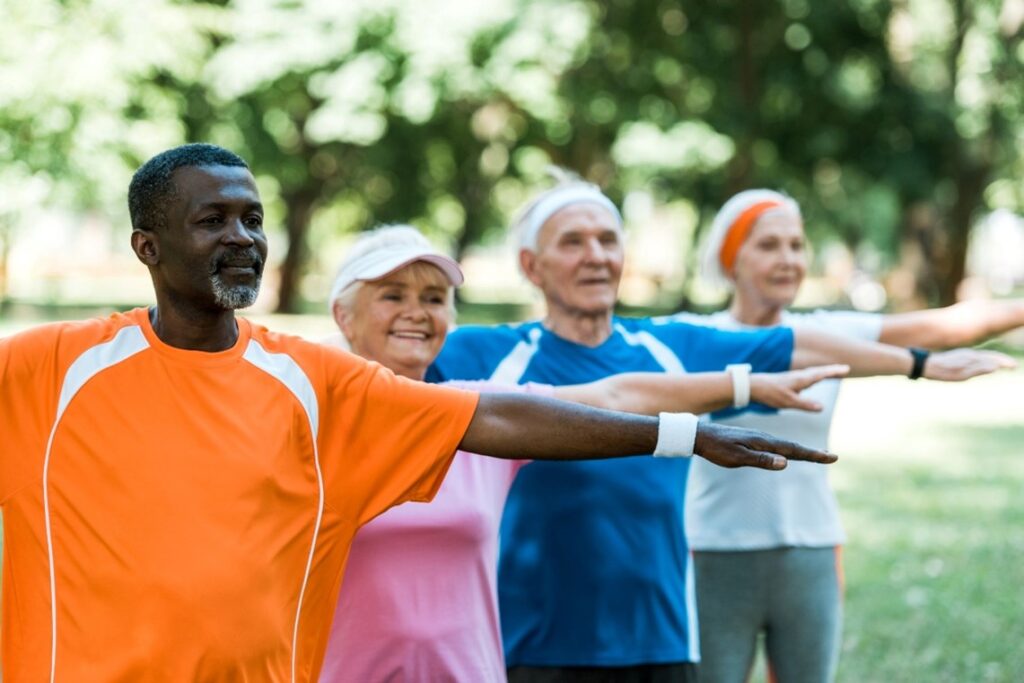Aging is a natural and inevitable part of life, but that doesn’t mean it has to come with a decline in health and vitality. With the right lifestyle choices, individuals can support healthy aging and enjoy a fulfilling and active life well into their later years. In this article, Dr. Kelly Roan explores key strategies for promoting age-defying wellness, encompassing nutrition, exercise, and mental well-being, to empower individuals to embrace aging with vitality and grace.
Nourishing Your Body for Longevity
Balanced Nutrition
A well-rounded, nutrient-dense diet forms the cornerstone of healthy aging. Focus on whole, unprocessed foods rich in fruits, vegetables, whole grains, lean proteins, and healthy fats. These provide essential nutrients and antioxidants that support cellular health and combat the effects of aging.
Hydration
Proper hydration is often overlooked but is crucial for maintaining optimal bodily functions. Aim to drink an adequate amount of water daily to support digestion, circulation, and overall well-being.
Mindful Eating
Cultivating awareness around food choices and eating habits can prevent overindulgence and promote healthier digestion. Practice mindful eating by savoring each bite, eating slowly, and paying attention to hunger and fullness cues.
Embracing Active Living
Regular Exercise Routine
Engaging in regular physical activity is a powerful tool for healthy aging. It improves cardiovascular health, maintains muscle mass, and supports bone density. Aim for a mix of cardiovascular exercises, strength training, flexibility, and balance exercises.
Incorporate Functional Movements
Functional movements mimic activities of daily living and help maintain independence as we age. These include activities like squatting, bending, lifting, and reaching. They enhance mobility and reduce the risk of injury.
Stay Socially Active
Maintaining social connections is a vital aspect of healthy aging. Engaging with friends, family, and community activities helps combat loneliness and promotes mental well-being.

Cultivating Mental Resilience
Continuous Learning
Lifelong learning stimulates the brain and supports cognitive function. Engage in activities that challenge your mind, such as reading, puzzles, learning a new language, or pursuing a hobby.
Meditation and Mindfulness
Practicing meditation and mindfulness techniques can reduce stress levels, improve mental clarity, and enhance overall well-being. These practices contribute to emotional balance and mental resilience.
Quality Sleep
Prioritize getting sufficient and restful sleep. Adequate sleep is essential for cognitive function, memory consolidation, and overall mental health.
Stress Management and Emotional Well-Being
Stress Reduction Techniques
Chronic stress can accelerate the aging process. Incorporate stress-reducing practices like deep breathing exercises, yoga, or spending time in nature to promote relaxation and emotional well-being.
Foster Emotional Connections
Cultivate meaningful relationships and open lines of communication with loved ones. Emotional support and a strong social network are essential for mental and emotional health.
Regular Health Screenings and Check-Ups
Routine health check-ups and screenings are crucial for early detection and prevention of age-related health issues. Regular visits to healthcare providers can help manage and address potential concerns promptly.
Conclusion: Thriving Through the Ages
Embracing healthy aging is about proactively nurturing your physical, mental, and emotional well-being. By adopting these strategies, individuals can fortify their bodies and minds, enabling them to lead vibrant and fulfilling lives as they age. Remember, age is just a number, and with the right approach, you can defy stereotypes and embrace the journey of aging with vitality and grace.
